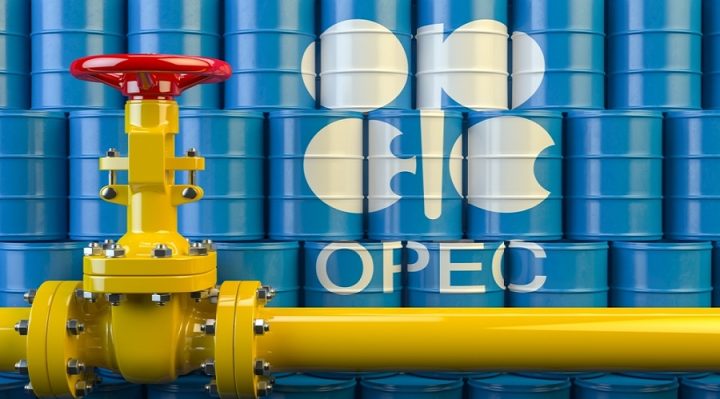- OPEC+’s two-year production pact is sent to end in August.
- The war premium on oil has kept prices elevated, adding inflationary pressure across the globe.
- OPEC has routinely struggled to meet its agreed-upon production targets, raising questions as to whether or not it can even increase output.
The production pact OPEC+ struck in April 2020 is set to end a month earlier than initially planned, in August 2022. The oil-producing group, however, is already facing its next dilemma—it has been facing it since the alliance’s key member, Russia, invaded Ukraine in February, sending oil prices above $100 a barrel.
The war premium and the sanctions and bans on Russian oil in the West are keeping prices so elevated that inflation in developed economies, including in the United States, has surged to a four-decade high, also driven up by soaring food prices and renewed supply-chain bottlenecks.
Oil at between $110 and $120 a barrel is a major pain for consumers, and every policymaker, including U.S. President Joe Biden, or a grouping of nations such as G7, is calling on OPEC+ to boost production.
The new dilemma for OPEC+ is whether to cave to the increasing pressure and boost supply, thus sacrificing what precious little spare capacity the world has. Alternatively, the group could stick to its guns, keep that spare capacity intact, and let an economic slowdown or a recession solve the soaring oil price problem from the demand side.
The dilemma was on the top of analysts’ minds months before this week’s meeting of the OPEC+ group, which is expected to rubberstamp a 648,000 bpd production increase for August as decided at the early-June meeting. Back then, OPEC+ decided to accelerate its monthly oil production increase and redistribute the planned September rise equally over July and August, with 648,000 bpd increases in each of the two months.
Thus, the unwinding of the 9.7-million-bpd cuts that began in May 2020 will have finished in August, a month earlier than what was planned two years ago. The last phase of the OPEC+ deal from 2020 has attracted less attention than the big question: What’s next?
Major consuming nations are pushing for more supply from OPEC+. Even President Biden—desperate to see relief for American drivers ahead of the midterm elections—has made a U-turn on Saudi Arabia and is expected next month to visit the Kingdom, which he said on the campaign trail would be treated as a “pariah” state during his presidency. But U.S. gasoline prices at $5 a gallon and the loss of part of the Russian supply have made President Biden reconsider and meet with Crown Prince Mohammed bin Salman.
Saudi Arabia, for its part, has little oil to spare. The Kingdom’s production target for August will be close to 11 million bpd. This is a level rarely reached, and not for a sustained period of time. The record Saudi production was in April 2020 at 11.550 million bpd, per OPEC’s secondary sources. But it was a one-time event when Saudi Arabia and Russia engaged in a brief war for market share in March and April 2020 before reaching the deal for the record cuts amid global COVID-related lockdowns and a crash in consumption.
So, it’s not certain that the Saudis have the ability to pump 11 million bpd or more on a sustainable basis. It’s even less certain that the Kingdom can quickly tap into the 12.2 million bpd production capacity it claims it has. No one has ever seen Saudi Arabia produce more than an average of 11.5 million bpd for an entire month.
Analysts believe that the Kingdom and the United Arab Emirates (UAE) are the only producers with some spare capacity. In reality, no one really knows. Earlier this week, French President Emmanuel Macron told President Biden that the UAE and Saudi Arabia’s oil production is nearing their limit.
Nigeria, one of the OPEC members struggling the most with pumping to target in recent months, also says spare capacity is low.
“Some people believe the prices to be a little bit on the high side and expect us to pump a little bit more but at this moment there is really little additional capacity,” Nigeria’s Petroleum Minister Timipre Sylva said last week as cited by Bloomberg.
The low spare capacity levels across OPEC+ suggest that the group, or at least Saudi Arabia and the UAE, could be unwilling to ramp up production, even if they are able to. With higher production levels untested for a prolonged period of time, spare capacity will disappear and the world will be a blockade in Libya or a major hurricane in the Gulf of Mexico away from another major spike in oil prices.
By Tsvetana Paraskova for Oilprice.com

